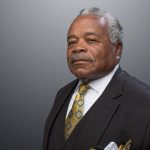Originally published in the Tennessean, December 2020
There’s no doubt we’re being changed through the many challenges of 2020 — by circumstances beyond our control, but also by how we respond to them and to one another. I believe these uncertain times offer us a chance to see who we truly are, and who we want to be.
To begin with, let’s recall a fundamental truth written into America’s founding documents: each person has inherent dignity, worth, and rights, simply because they are human. That truth leads me to ask, what are our responsibilities to one another?
One is simply to recognize the equal value we all share. It follows that we owe one another our best efforts at civility, especially in these uncertain times.
So, what does civility actually mean, and how can we put it into practice?
It may be tempting to think civility is simply another word for politeness. But civility is about our attitudes and behavior as much as it is about what we say and how we say it.
We can boil civility down to three key steps:
- Seeing one another for who we truly are. This takes understanding the factors that shape our identities – which include race and gender, but also things like age, physical and mental abilities, socioeconomic circumstances, and religious and cultural beliefs. We also have to recognize the ways society has trained us, unconsciously, to think about people of certain background, beliefs or characteristics. Each person’s story is unique, and we have to get to know one another as individuals.
- Listening to one another with the intent to understand. We should listen carefully, with the humility to know we can learn from anyone and without thinking ahead to how we’ll respond. And we should ask questions so we can dig deeper together, to learn more about one another – what we have in common and what we may not.
- Speaking to one another as people of equal value. Our words flow from our hearts, which are influenced by how we see and hear. Our words have the power to tear down or build up, to inspire fear or hope, to pull people apart or bring them together. We should use our words to reflect our shared humanity.
None of these steps toward civility depend on us being the same. We come from different backgrounds and have different perspectives. And if we respect one another, we can summon our differences as a source of strength to make Tennessee a more vibrant place to call home.
In fact, I believe we have a moral responsibility to come together, because we are called to something higher than our own self-interest. We are our brothers’ and sisters’ keepers.
It’s a powerful responsibility, and it may make us uncomfortable — especially when the stakes are high. When we face adversity, we may be tempted by incivility. But we must be certain of our shared humanity, as well as our shared commitment to mutual good will and service.
I hope we will be people who value one another enough to be civil, even and especially in disagreement — because we actually hold so much in common. We are people of equal worth and dignity. We want to be good citizens, good neighbors, good parents. We hope the next generation of Tennesseans will be successful, contributing to the common good of our state.
So we must model civility, now more than ever.
If we see one another, hear one another and speak to one another with civility, we can make Tennessee better together.


 Ron is responsible for cultivating a corporate culture where diversity and inclusion are aligned with the company's strategies and values. He provides strategic leadership and counsel for diversity initiatives within the organization, including diversity awareness training, recruitment, cultural competency training, employee development and community outreach.
Ron is responsible for cultivating a corporate culture where diversity and inclusion are aligned with the company's strategies and values. He provides strategic leadership and counsel for diversity initiatives within the organization, including diversity awareness training, recruitment, cultural competency training, employee development and community outreach.